 Most people fully understand the benefits of a full night’s sleep – especially if they haven’t been getting one. Getting the appropriate amount of sleep is very important for many reasons, according to the Sleep Foundation. The organization indicates that we don’t catch enough z’s, we can open ourselves up to some concerns, including increased calorie consumption, decreased cognitive performance, inability to focus, impaired driving, and other health concerns.
Most people fully understand the benefits of a full night’s sleep – especially if they haven’t been getting one. Getting the appropriate amount of sleep is very important for many reasons, according to the Sleep Foundation. The organization indicates that we don’t catch enough z’s, we can open ourselves up to some concerns, including increased calorie consumption, decreased cognitive performance, inability to focus, impaired driving, and other health concerns.
They also explain that while there are many factors that can lead to poor sleep, one of the largest factors is bedroom temperature. A room that is too hot or too cold can disrupt the body’s ability to both fall asleep and stay asleep, although overly warm bedrooms seem to cause more sleep disruptions than those that are a bit too chilly. While comfortable sleep temperatures vary from person to person, most doctors agree that the ideal temperature for most is around 65ºF.
How can an HVAC dealer help me find the right sleeping temperature?
While your home comfort specialist can’t necessarily determine the best sleeping temperature for their customers, they can help them achieve it once the homeowner discovers it. There are products available that can make it easier to ensure your bedroom is just right for sleep.
- Programmable Thermostats: Once you determine your ideal sleeping temperature, a programmable thermostat can help you set it and forget it! That’s because most programmable thermostats have settings for home, away, and sleep. You can set the “sleep” time a bit in advance of your usual bedtime to ensure your room is the ideal temp, too!
- Smart Thermostats: A step up from the programmable thermostat, a smart thermostat is easy to control via a computer, tablet, or smartphone. So, no matter where you are, you can easily use the product app to set the right temperature for sleep. And, some smart thermostats are even able to “learn” your habits, so they automatically change the temperature so that it’s just right for sleeping.
- Ductless Cooling & Heating: What if you have one HVAC system in your home, but the people living there can’t agree on a sleeping temperature? Then ductless might be the solution for you. That’s because a ductless system can control the temperature in a specific area, making it much easier to create the ideal sleeping environment for individual sleepers!
Can T.F. O’Brien help me get these products for my home?
We can! As a trusted HVAC contractor, we’re able to install both programmable and smart thermostats in your home and explain to you how to use them. And, if you need better temperature control from room to room, we’ll be happy to show you how ductless can help. Simply give us a call at 516.488.1800 to schedule an appointment with us – and rest easy!
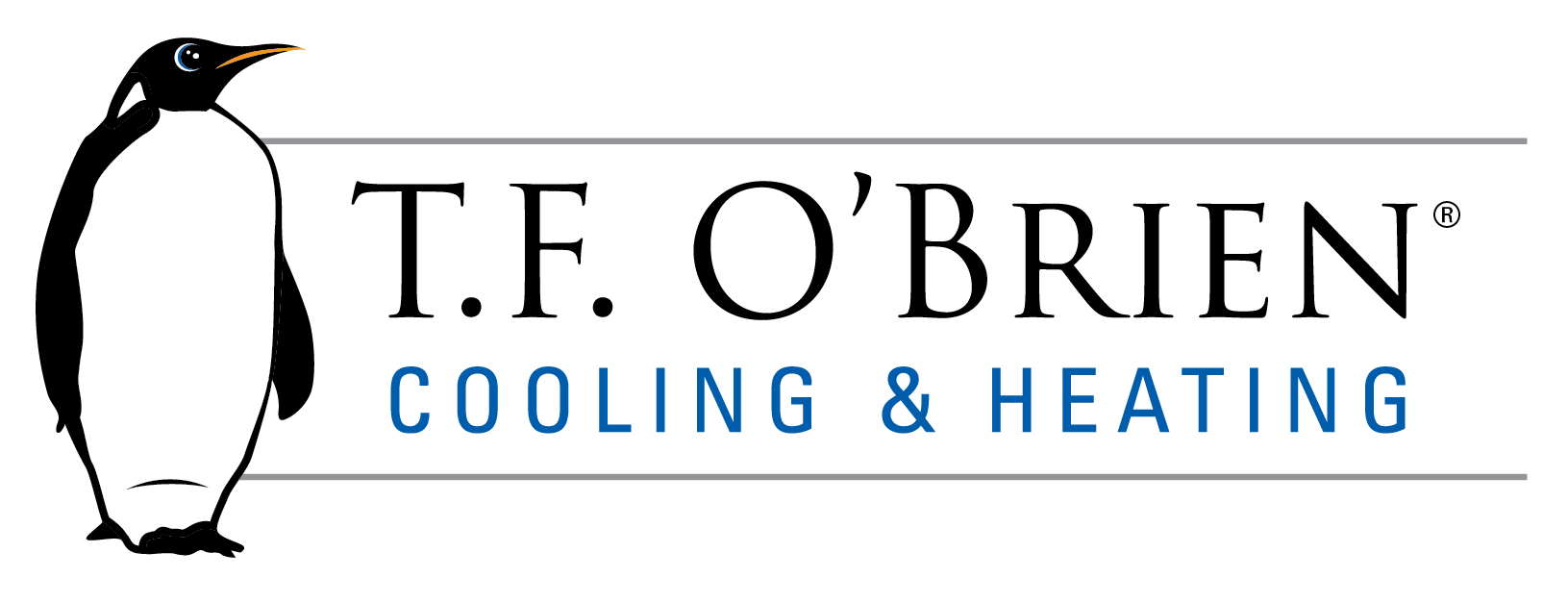
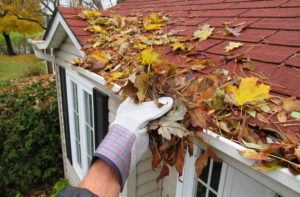 While the weather on Long Island stays milder a bit longer than it does for our neighbors to the north, once the fall season arrives, many of us start to think about the cooler temperatures ahead. Often, we take advantage of the sunny days we have left before winter arrives to get our home ready for the chilly weather. Making sure that your home is comfortable year-round is an important part of homeownership.
While the weather on Long Island stays milder a bit longer than it does for our neighbors to the north, once the fall season arrives, many of us start to think about the cooler temperatures ahead. Often, we take advantage of the sunny days we have left before winter arrives to get our home ready for the chilly weather. Making sure that your home is comfortable year-round is an important part of homeownership.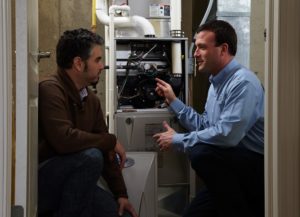 Most people with furnaces installed in their homes know how important regular
Most people with furnaces installed in their homes know how important regular  This time of year, we often see an increase in storm activity on Long Island, including, unfortunately, hurricanes. Storms can lead to power outages, sometimes lasting several days. That’s why it’s important to know that you can protect your home and family during a storm by installing a home generator. We’re sharing five reasons why having a home generator is a good idea, and how you can benefit from having one for your home.
This time of year, we often see an increase in storm activity on Long Island, including, unfortunately, hurricanes. Storms can lead to power outages, sometimes lasting several days. That’s why it’s important to know that you can protect your home and family during a storm by installing a home generator. We’re sharing five reasons why having a home generator is a good idea, and how you can benefit from having one for your home. In March of 2020, the COVID-19 pandemic brought many industries across the nation to a grinding halt. Unfortunately, the HVAC industry was not an exception. As facilities shut down, so did the production of HVAC equipment. As a result, there is currently a shortage in the number of products readily available, versus the demand. And, as more people are entrusting the air they breathe to specialty products, such as advanced filtration and other indoor air quality devices, it becomes more difficult for contractors to meet customer needs in as timely a fashion as pre-pandemic.
In March of 2020, the COVID-19 pandemic brought many industries across the nation to a grinding halt. Unfortunately, the HVAC industry was not an exception. As facilities shut down, so did the production of HVAC equipment. As a result, there is currently a shortage in the number of products readily available, versus the demand. And, as more people are entrusting the air they breathe to specialty products, such as advanced filtration and other indoor air quality devices, it becomes more difficult for contractors to meet customer needs in as timely a fashion as pre-pandemic. During the summer months, people may notice that their homes feel damp or “muggy.” While on occasion this can be a fleeting concern, sometimes, people have ongoing problems with too much moisture in their homes. While at best overly humid air in the home can cause its residents some discomfort, unfortunately, there is a whole host of other issues that can be cause for concern.
During the summer months, people may notice that their homes feel damp or “muggy.” While on occasion this can be a fleeting concern, sometimes, people have ongoing problems with too much moisture in their homes. While at best overly humid air in the home can cause its residents some discomfort, unfortunately, there is a whole host of other issues that can be cause for concern.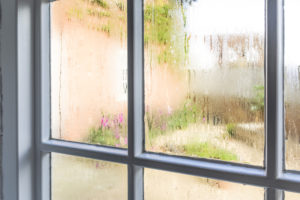 Today’s homes are built for better energy efficiency, which in and of itself is a great thing. Using less energy not only helps your wallet, but it helps the earth, too. Unfortunately, though, this means your home is more tightly sealed than an older home might be – and this can lead to some indoor air quality concerns, including too much indoor humidity.
Today’s homes are built for better energy efficiency, which in and of itself is a great thing. Using less energy not only helps your wallet, but it helps the earth, too. Unfortunately, though, this means your home is more tightly sealed than an older home might be – and this can lead to some indoor air quality concerns, including too much indoor humidity.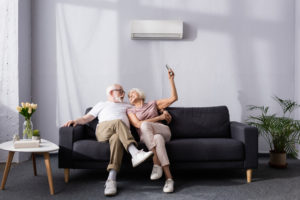 Now that the summer weather has arrived, most homeowners are turning on their air conditioning systems to escape the outdoor heat. If you have an older system, though, you might be thinking that you’re not as comfortable as you’d like to be. As air conditioning systems age, they can become less efficient and less effective, so you end up paying more to cool your home while experiencing diminished comfort. And, if you have to make frequent repairs to your system, the costs may seem to outweigh the benefits.
Now that the summer weather has arrived, most homeowners are turning on their air conditioning systems to escape the outdoor heat. If you have an older system, though, you might be thinking that you’re not as comfortable as you’d like to be. As air conditioning systems age, they can become less efficient and less effective, so you end up paying more to cool your home while experiencing diminished comfort. And, if you have to make frequent repairs to your system, the costs may seem to outweigh the benefits.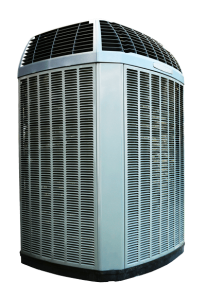 If you’ve had a central air conditioning system, or if your home has ductwork, central air is likely a good choice for you. Central AC systems provide cooling throughout your entire home via your system of ductwork and vary in size and configuration based on your home’s unique needs.
If you’ve had a central air conditioning system, or if your home has ductwork, central air is likely a good choice for you. Central AC systems provide cooling throughout your entire home via your system of ductwork and vary in size and configuration based on your home’s unique needs. Heat pump systems are one of the most highly efficient means of cooling your home available. That’s because they absorb the heat from the indoor air and release it into the outdoor air or into the ground. Much like traditional central air conditioning, the system is comprised of an indoor and outdoor unit and uses your home’s ductwork to move the cooled air throughout your home.
Heat pump systems are one of the most highly efficient means of cooling your home available. That’s because they absorb the heat from the indoor air and release it into the outdoor air or into the ground. Much like traditional central air conditioning, the system is comprised of an indoor and outdoor unit and uses your home’s ductwork to move the cooled air throughout your home.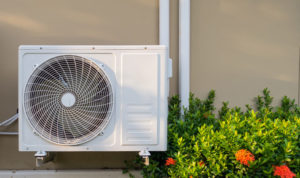 Ductless systems generally rely on heat pump technology, which makes them a highly efficient way to cool your home. So, you may be wondering, why get a ductless system when you can just get a heat pump? There are many benefits to ductless that make it a great choice for any home.
Ductless systems generally rely on heat pump technology, which makes them a highly efficient way to cool your home. So, you may be wondering, why get a ductless system when you can just get a heat pump? There are many benefits to ductless that make it a great choice for any home. Once the summer heat arrives, the last thing anyone wants to think about is their air conditioning system not working well. A broken-down AC system is certainly never convenient and not a welcome situation on a hot day. However, there are a few signs your air conditioner will give you if it’s not working properly that can help you avoid a complete breakdown – and a potentially costly replacement.
Once the summer heat arrives, the last thing anyone wants to think about is their air conditioning system not working well. A broken-down AC system is certainly never convenient and not a welcome situation on a hot day. However, there are a few signs your air conditioner will give you if it’s not working properly that can help you avoid a complete breakdown – and a potentially costly replacement. More and more, people are becoming concerned about how they impact the planet. From shopping with reusable bags and looking for products with environmentally-friendly packaging, to taking measures in their homes to minimize their carbon footprint, people are looking for ways they can protect the world around them.
More and more, people are becoming concerned about how they impact the planet. From shopping with reusable bags and looking for products with environmentally-friendly packaging, to taking measures in their homes to minimize their carbon footprint, people are looking for ways they can protect the world around them.